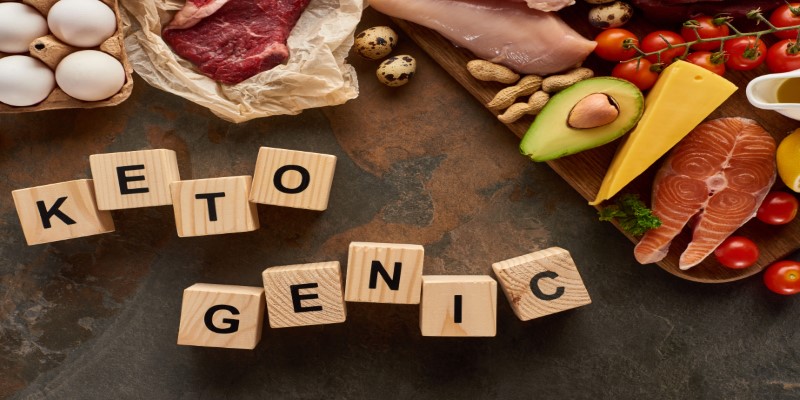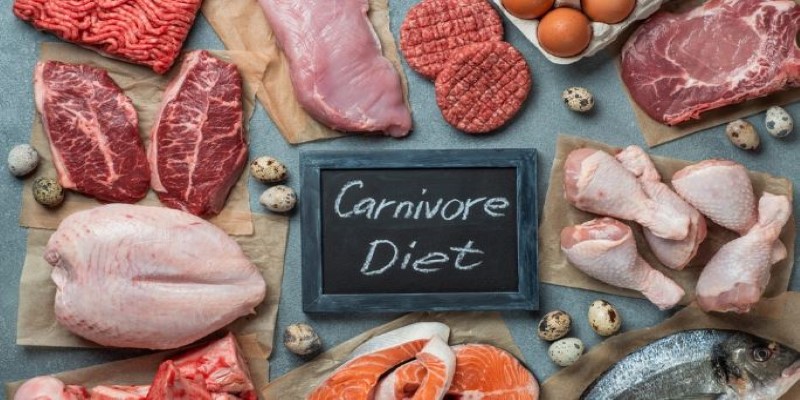Hydration is vital to keeping the body functioning properly, and while many focus on what they eat for health, they might overlook how their diet affects their hydration levels. Certain diets can inadvertently lead to dehydration by changing how much water your body retains, how much fluid is lost, or even by altering your thirst mechanism.
In this article, we'll explore five specific diets that could contribute to dehydration, examining how they impact the body's water balance and what you can do to stay hydrated while following these popular eating plans.
Are These 5 Diets Sabotaging Your Hydration?
Lets dive into why these diets might be leaving you thirsty and what you can do to stay properly hydrated while following them.
Ketogenic Diet
The ketogenic (or keto) diet has gained immense popularity for its potential to aid in weight loss by drastically reducing carbohydrate intake and increasing fat consumption. However, this low-carb, high-fat diet has a direct impact on the body's water balance. When you limit carbs, the body uses up glycogen stores in muscles and the liver. Glycogen is bound to water, so when these stores deplete, water is released, leading to increased urination. This is why people on the keto diet often notice a rapid loss of water weight in the first few days.

Additionally, the keto diet can lead to a loss of electrolytes, such as sodium, potassium, and magnesium, which are critical for maintaining hydration. When these electrolytes drop, its harder for the body to retain water, making dehydration a common concern among keto dieters. To counter this, it's essential to increase water intake and ensure you're getting enough electrolytes.
High-Protein Diets
Diets that emphasize high protein intake, such as the Atkins diet or other low-carb, high-protein plans, can also contribute to dehydration. The body requires more water to metabolize protein, as it produces more nitrogenous waste (like urea) that needs to be flushed out through the kidneys. This increased demand on the kidneys leads to greater water loss through urination.
Furthermore, many high-protein diets encourage cutting back on carbs, which means less glycogen in the bodyagain, leading to water being released. Like the keto diet, this can result in significant water loss early on, but without proper hydration, it can become a long-term issue. Staying hydrated on a high-protein diet requires drinking more water than usual and being mindful of how much fluid your body is expelling.
Low-Carb Diets
Low-carb diets, like the paleo diet, share many characteristics with the keto diet when it comes to hydration. By drastically reducing carbohydrate intake, these diets lower the body's glycogen stores, which, as mentioned, are bound to water molecules. Once these stores are used up, the body releases water, leading to increased urination and a higher risk of dehydration.
Moreover, low-carb diets often result in a significant reduction in insulin levels, which can have a diuretic effect. Insulin helps the kidneys retain sodium, and when insulin levels drop, sodium is excreted in larger amounts through urine, taking water with it. This effect can lead to a cycle of dehydration unless extra care is taken to replace lost fluids and electrolytes.
Intermittent Fasting
Intermittent fasting, where individuals alternate between periods of eating and fasting, has become a popular way to manage weight and health. However, during the fasting windows, many people forget to consume enough fluids, which can result in dehydration. Even though fasting typically doesn't restrict water intake, the reduced focus on hydration during non-eating periods can lead to insufficient fluid consumption.
Additionally, fasting can alter your body's balance of electrolytes, especially if it's combined with intense exercise or extreme calorie restriction. When the body doesn't get enough fluids or electrolytes during fasting, symptoms of dehydration like headaches, fatigue, and dizziness can occur. To prevent dehydration, its important to consciously drink water and replenish electrolytes during both fasting and eating periods.
Carnivore Diet
The carnivore diet, which involves consuming only animal products, is another extreme eating plan that can contribute to dehydration. By eliminating all plant-based foods, the diet lacks fiber and many water-rich foods like fruits and vegetables. Fiber not only aids in digestion but also helps the body retain water, while fruits and vegetables are some of the best sources of hydration.

Furthermore, like other low-carb diets, the carnivore diet can lead to the depletion of glycogen stores, increasing water loss. Without these essential glycogen reserves, the body expels more water, and without the balance of electrolytes found in plant-based foods, dehydration becomes a real concern. Those following a carnivore diet must be vigilant about drinking enough water and ensuring they maintain electrolyte balance, either through supplements or other means.
Managing Hydration on These Diets
While these diets can contribute to dehydration, it doesn't mean they must be abandoned altogether. The key is to manage hydration proactively. Here are a few strategies to help maintain proper hydration while following any of these eating plans:
Increase water intake: This may seem obvious, but many people underestimate how much water they need, especially when on a restrictive diet. Drinking water regularly throughout the day is essential.
Monitor electrolyte levels: Pay attention to your intake of sodium, potassium, and magnesium, as these electrolytes help the body retain water. If youre losing them through urine or sweat, consider adding electrolyte-rich foods or supplements to your diet.
Incorporate hydrating foods: If your diet allows, include foods high in water content, such as cucumbers, lettuce, and watermelon. For diets that restrict fruits and vegetables, make up for this loss by increasing your fluid intake and possibly using supplements.
Listen to your body: Thirst is often a late sign of dehydration, so it's crucial to drink water before you feel thirsty. If you notice symptoms like dry mouth, fatigue, or dark urine, these could be signs that you need more fluids.
Conclusion
Hydration plays a critical role in maintaining overall health, and while certain diets may be effective for weight loss or health management, they can increase the risk of dehydration. The ketogenic diet, high-protein diets, low-carb diets, intermittent fasting, and the carnivore diet all have mechanisms that can lead to increased water loss.
By staying mindful of hydration needs and making adjustments where necessary, you can continue to follow these diets without putting your health at risk. Always pay attention to your body's signals and ensure you're getting enough fluids to support your daily activities and dietary goals.







